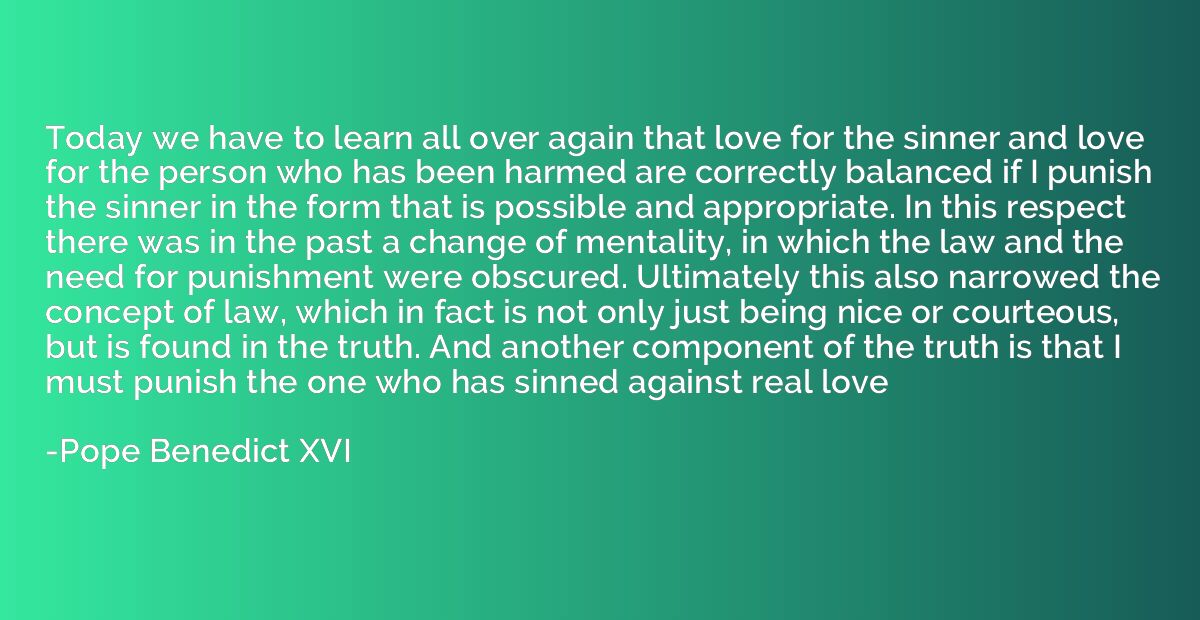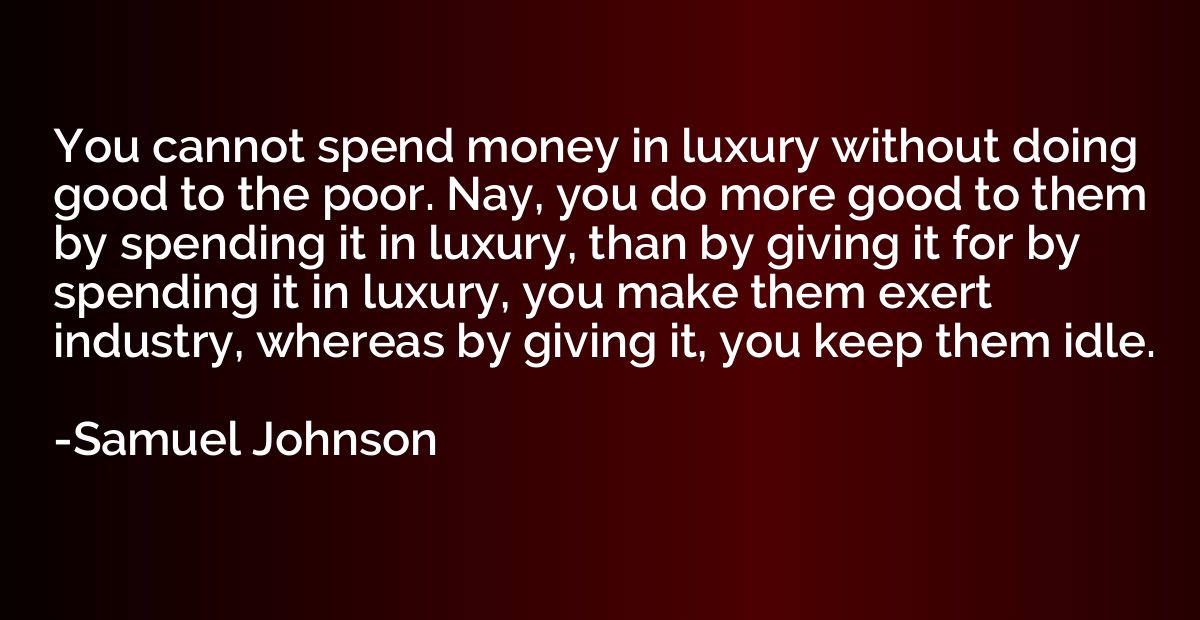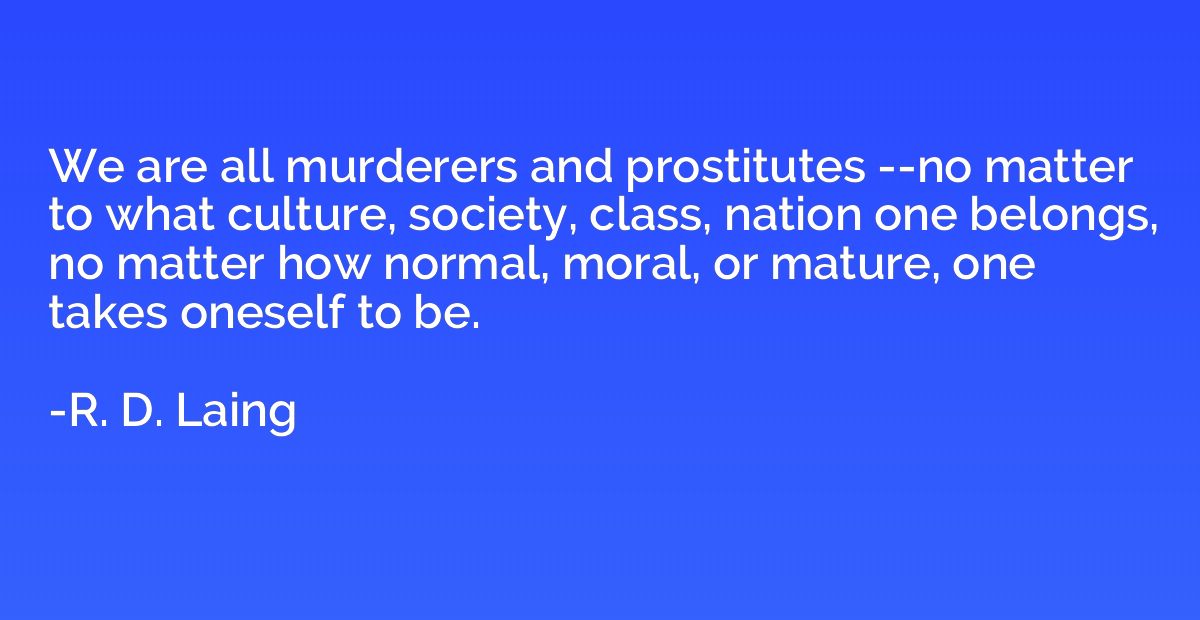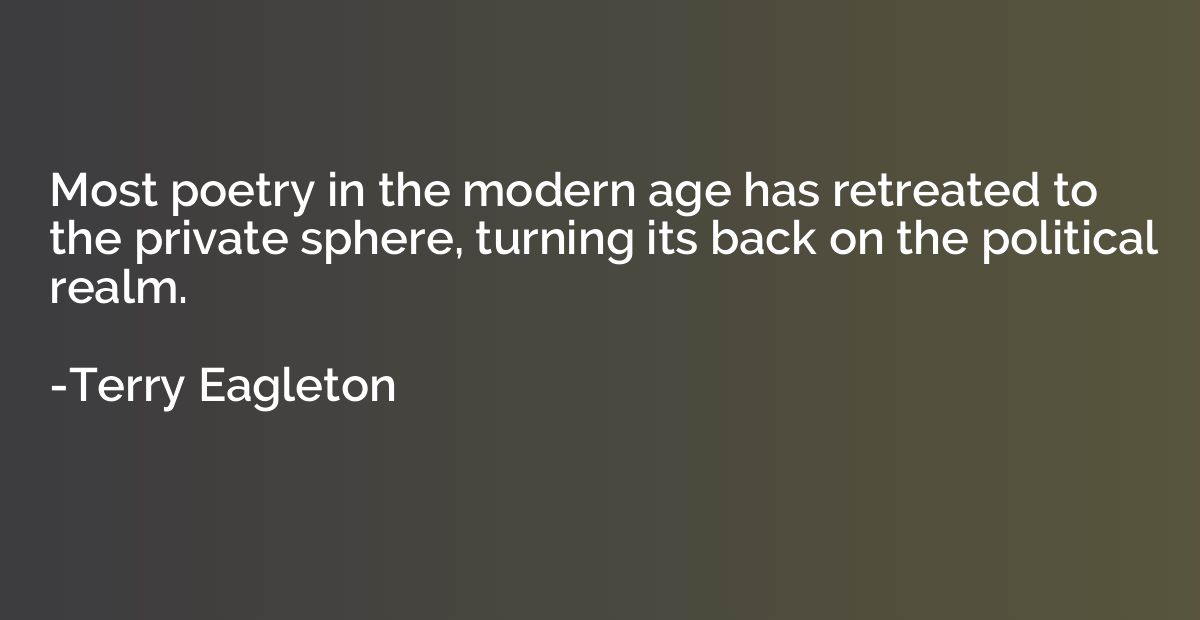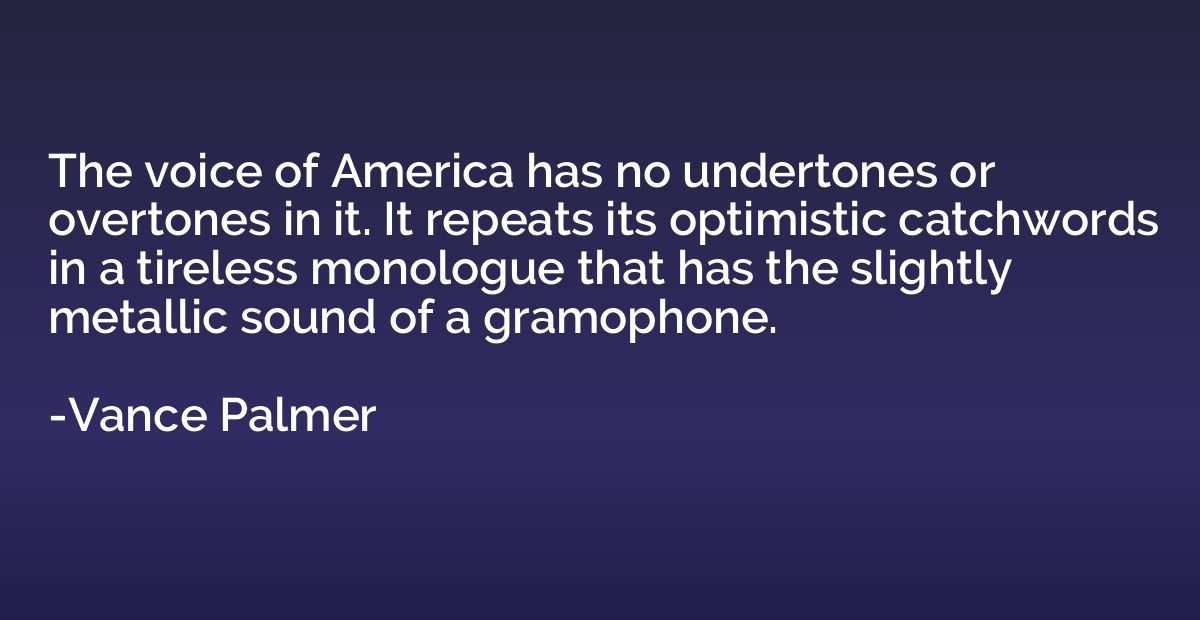Quote by Madame de Stael
Love is a symbol of eternity. It wipes out all sense of time, destroying all memory of a beginning and all fear of an end.
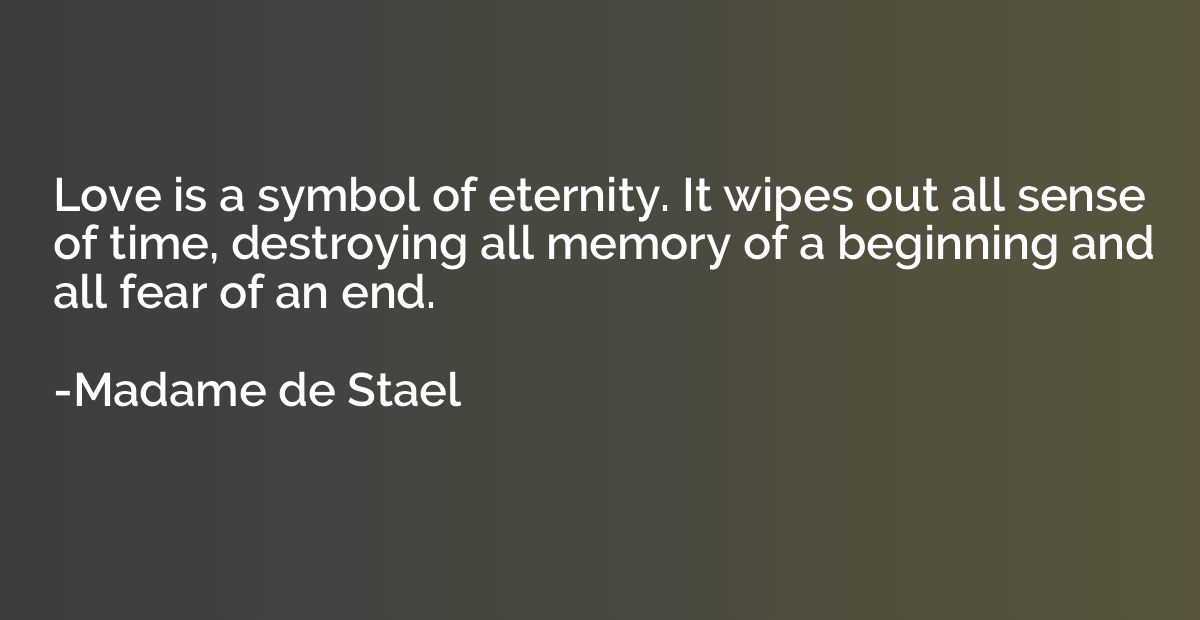
Summary
This quote suggests that love is a powerful and eternal force that transcends time and negates any notion of a beginning or an end. It implies that love has the ability to erase the concept of time altogether, granting a sense of timelessness. Love eliminates the fear of losing someone or the anxiety about the future, emphasizing its eternal and boundless nature. It conveys the idea that love can exist indefinitely and has a transformative effect that defies temporal limitations.




